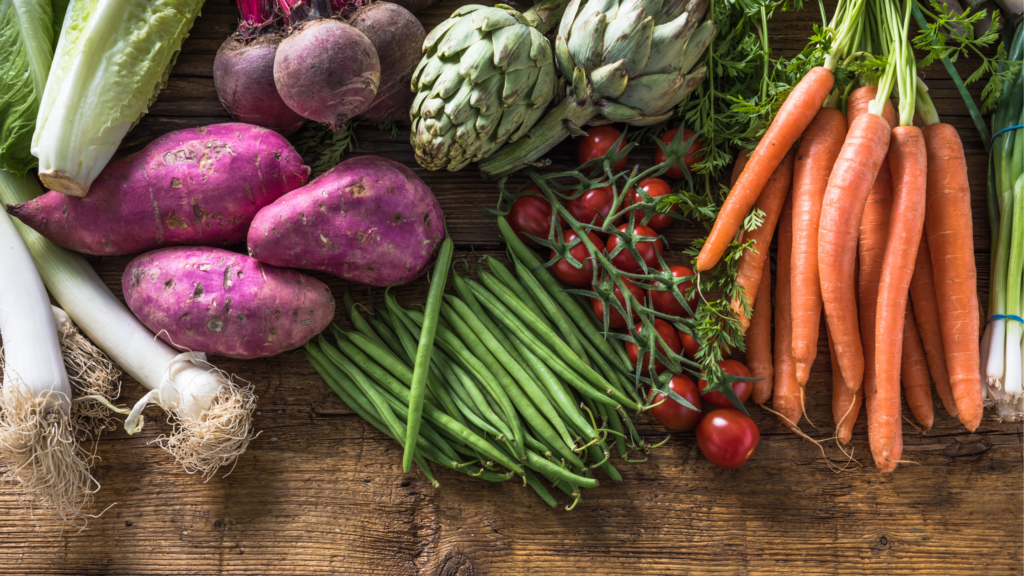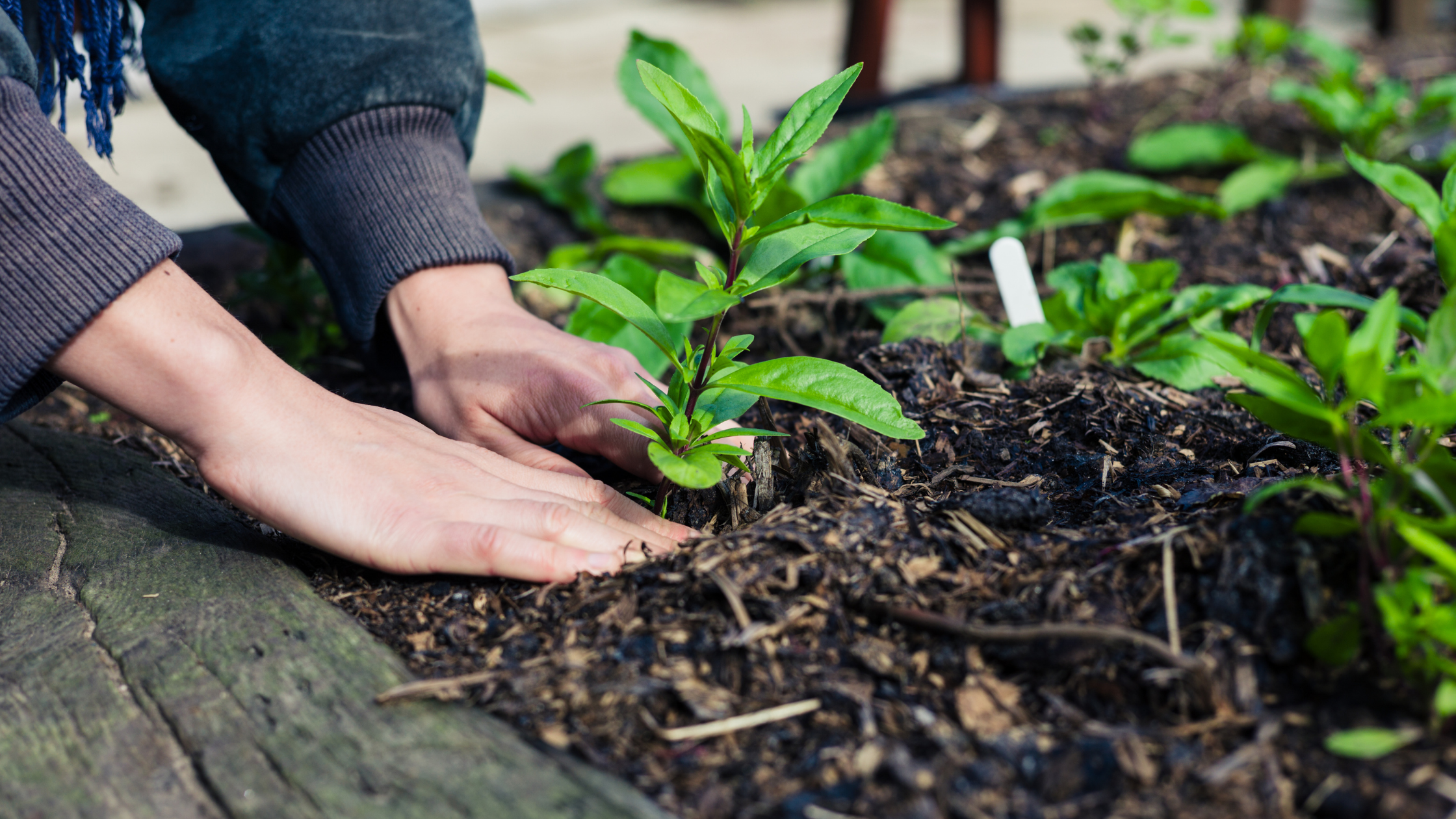Beginning your own produce garden is an incredible way to boost your health while saving the environment. It can also be a rewarding hobby (I mean, how cool is it to be able to say you grow your own fruit and veggies?!). Whether you have a large yard or only a small porch, you can grow fresh food you can be proud of!
Why grow your own food?
1. Gardening is good for your physical health!
Bending, pulling weeds, using tools, and more make gardening a great aerobic exercise. Being out in the sun also gives you plenty of Vitamin D, essential for cognitive, immune, and bone health. Not to mention that according to Proven Winners, soil contains healthy microbes that are scientifically proven to calm our brain in similar ways as anti-anxiety medication. These different benefits make the activity extremely valuable to our bodies, and don’t even cover the nutritional value of homegrown food itself!
The fresher the produce, the more nutrient-dense it is. Produce in grocery stores hit the shelves after traveling many miles, making distribution an extremely lengthy process. As time goes on, this produce loses its freshness, hence losing its nutritional value. When you grow your food, you skip this entire process. You are also ensuring that your produce is not genetically modified or sprayed with any harmful pesticides. The produce grown in your backyard may be the best you’ve ever tasted!
2. Gardening is good for your bank account!
Homegrown plants provide much more bang for your buck. Seeds are very cost-effective, and once the plant is fully grown it provides more produce over a long period of time. Fresh food from your backyard also makes a great gift for friends and family!
3. Gardening is good for the planet!
Growing your own food can make a large impact on your carbon footprint. Food travels an average of 1,500+ miles before it reaches your table. By picking your produce from your backyard, you are reducing the number of fossil fuels emitted into the environment.
How to begin your garden
- Start by assessing the area you can use to build your garden. Section off an area in your backyard or purchase large pots to hold your plants in. If you have very limited space, consider only picking a few plants, or select small plants like herbs. You can also research community gardens near you and rent a small plot there.
- Once you’ve selected a spot, research what in-season plants are best to grow in your climate. Ensure you have the right type of soil for those particular plants. If not, plan to purchase soil as well. Learn more about different types of soil here. Once you’ve chosen your plants, head to your local hardware or garden store and purchase some seeds. Many garden stores offer full-grown plants too if you’re anxious to begin harvesting.
- The planting method will vary depending on the type of product you’re growing, as some plants need to start in seed trays. Once again, all you need to do is a little research about how your plants need to be sown. Some plants have much more particular methods needed for planting, so start easy. Check out this article that breaks down some of the easiest plants to grow.
- Water-based on your plant’s specific needs. Some plants require much more water than others, so it may be best to select plants that have similar watering schedules. Check out this simple watering guide to find out how your plants need to be fed.
- Fertilizing is one of the best ways to guarantee delicious, fresh produce. You can purchase various fertilizers at your local garden store or start your very own compost bin.
- Keep an eye on your plants to see when it is ripe and ready to be harvested. Use your tastebuds to guide you!
- Harvest your plants and enjoy!
Gardening can seem overwhelming when beginning, but just a bit of research can easily help you become an expert! So, take the leap and start your garden (we promise it’ll be worth it)!
Want to learn about how we grow food on campus? Check out the list in this article on being greener!




0 Comments